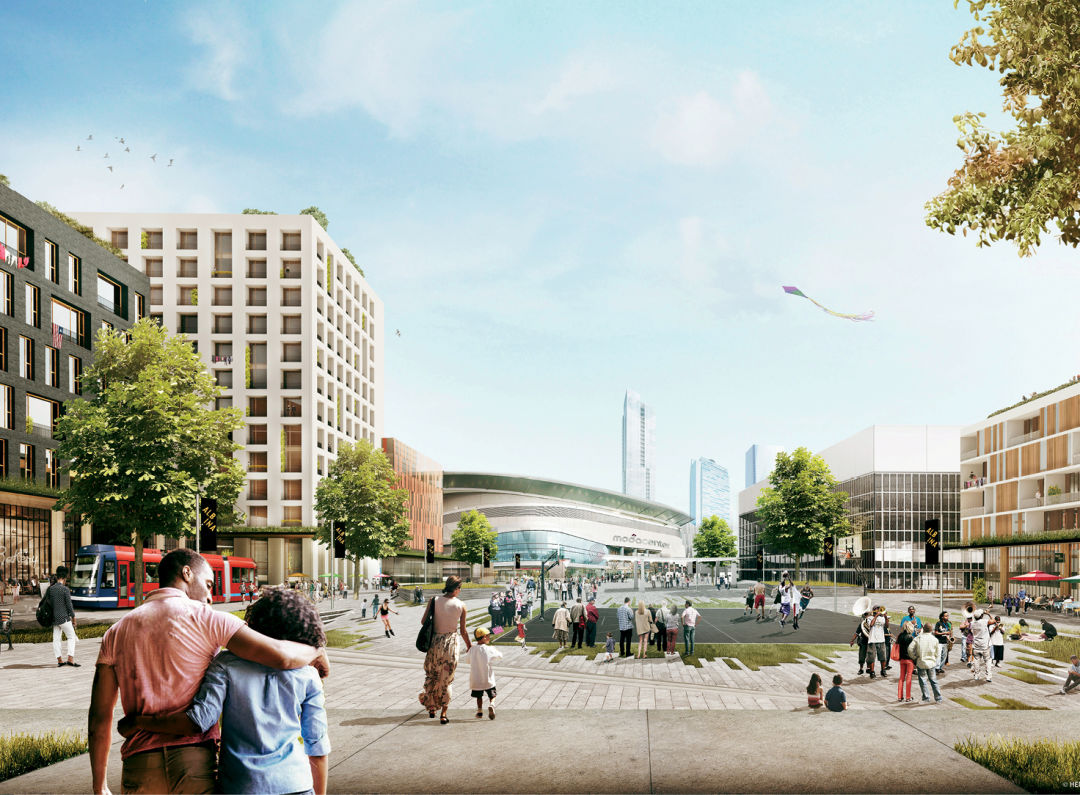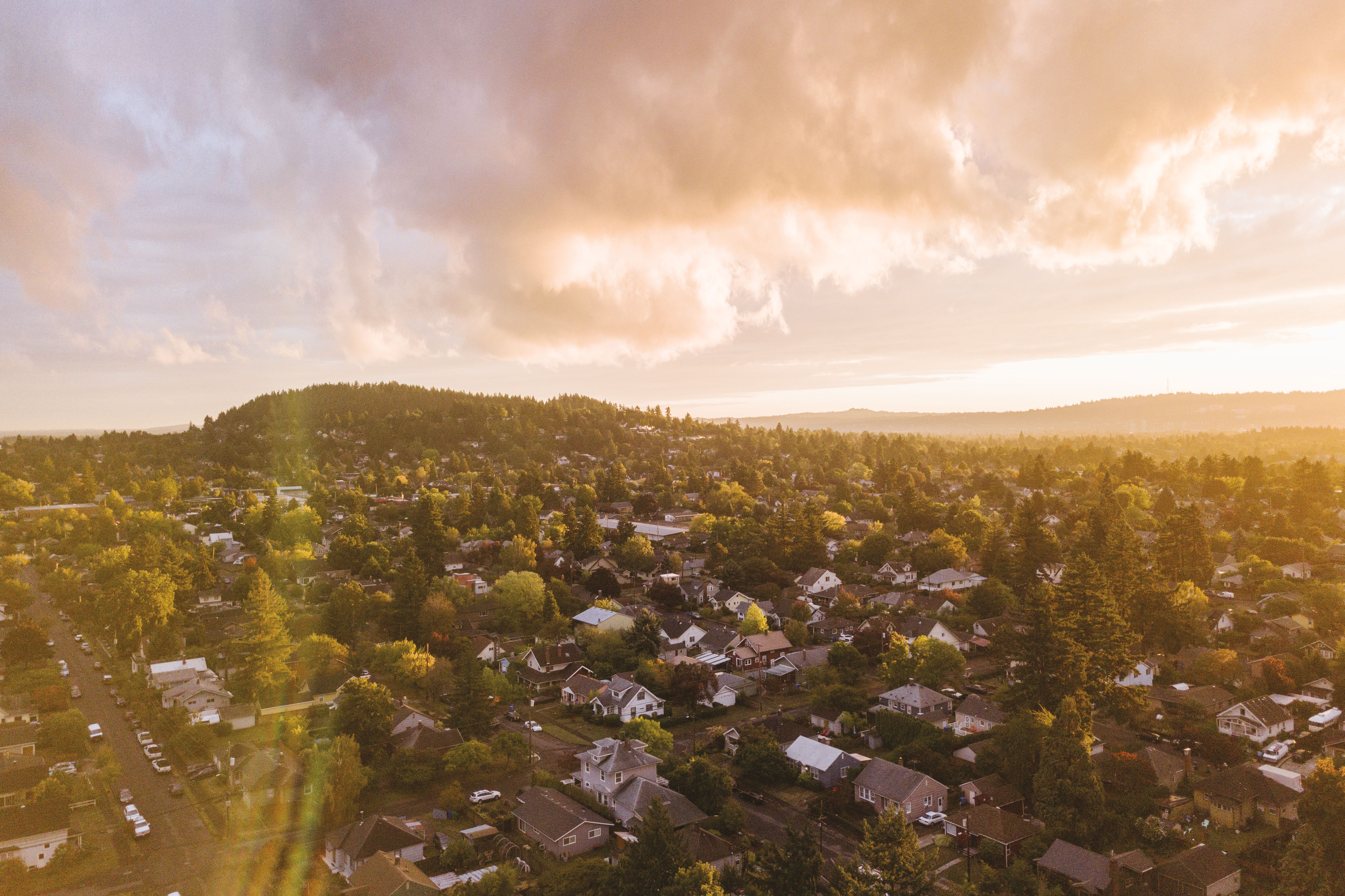From the Editor: A Radical Plan to Transform the Rose Quarter

Albina Vision conceptual rendering
In April, we cover real estate and Portland’s changing cityscape. (No different this time.) We’re a sunny group, and usually our stories feel like what you might call good news. Portland’s blowing up! The population’s surging, inner-city neighborhoods thrive, and old slumber zones now bustle as urban-planning prophecy foretold. Much to like.
But something’s off about a boom that evokes worries we could demolish all our charm and gentrify every neighborhood. Portland has development strategies to spare. Many wonder if we have a future we could love.
“Change alone isn’t making Portlanders uncomfortable,” says Rukaiyah Adams, the 44-year-old chief investment officer at Meyer Memorial Trust. “It’s the sense that we could lose what connects us.”
Adams, a Portland native returned after Stanford Law and Wall Street, is spearheading an effort called Albina Vision Trust: a bold idea to transform 94 acres centered on the Rose Quarter into a high-density, mixed-use neighborhood. The area has a problematic history. The Moda Center and Portland’s transportation heart sit on what was once an African American neighborhood, bulldozed in the ’50s and ’60s. Mishmash design has bequethed us dreary plazas and traffic tangles.
“Our urban problems can all be found right here,” Adams says. “Environmental degradation, racism, bad planning, poor public space. It’s all there.”
Adams and her collaborators imagine a socially diverse place; as she describes it, affordable for a retired African American couple or a public school teacher. “In the same way injustice can be carried out through urban design,” Adams says, “we can express justice through urban design.”
Last March, Albina Vision’s five-member board emerged from a long-running series of discussions about the area’s future. It’s a potent group: former city parks director Zari Santner, retired Northwest Natural CEO Gregg Kantor, developer Thomas Cody, ex-Urban League president Michael Alexander, and Adams. They’re crafting a potentially innovative financing framework that could preserve affordability and allow everyday citizens to invest in development. (“Math and law,” as Adams puts it.)
Portland has its customary processes and channels. Right now, Albina Vision operates outside of them. “We don’t have any authority, property, or power,” Adams says. “But we have soul.” So the effort could change the city, or not. But soul is important. If Albina Vision contributes nothing else to the consideration of Portland’s future self, that will be something.
“We’re seeing a lot of projects,” Adams says of the current cityscape. “But no moonshot. This is a moonshot. This is a heart-shot.”
Zach Dundas
Editor in Chief




